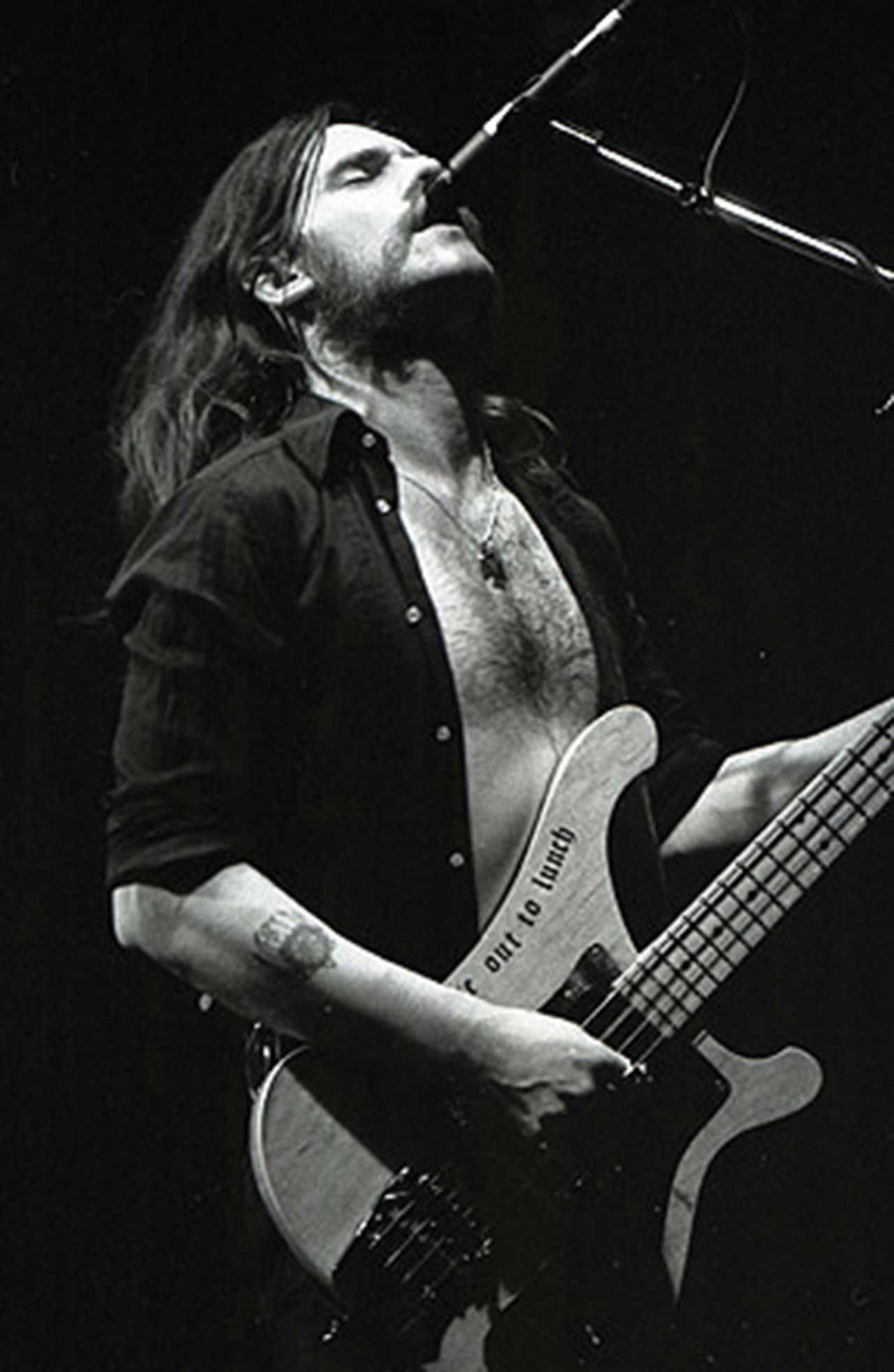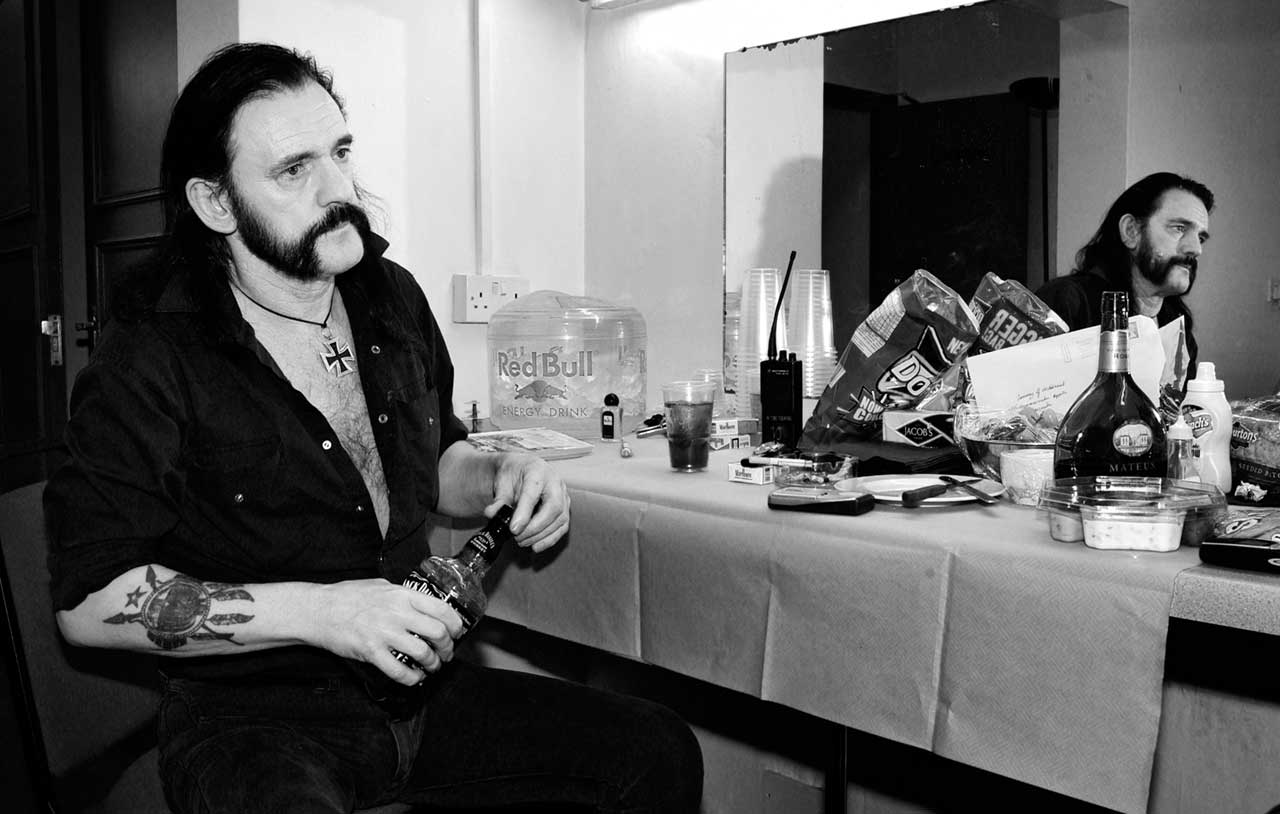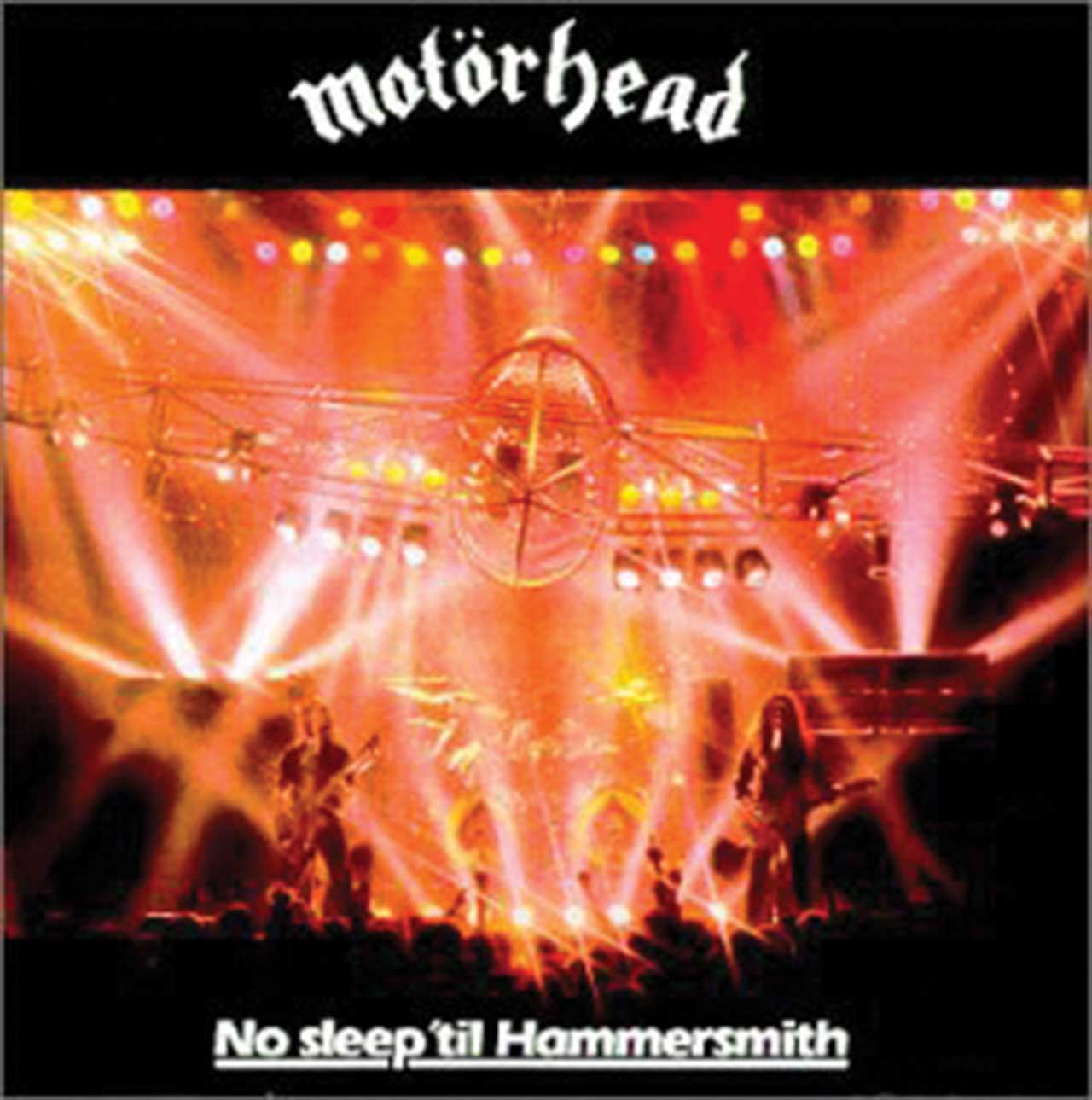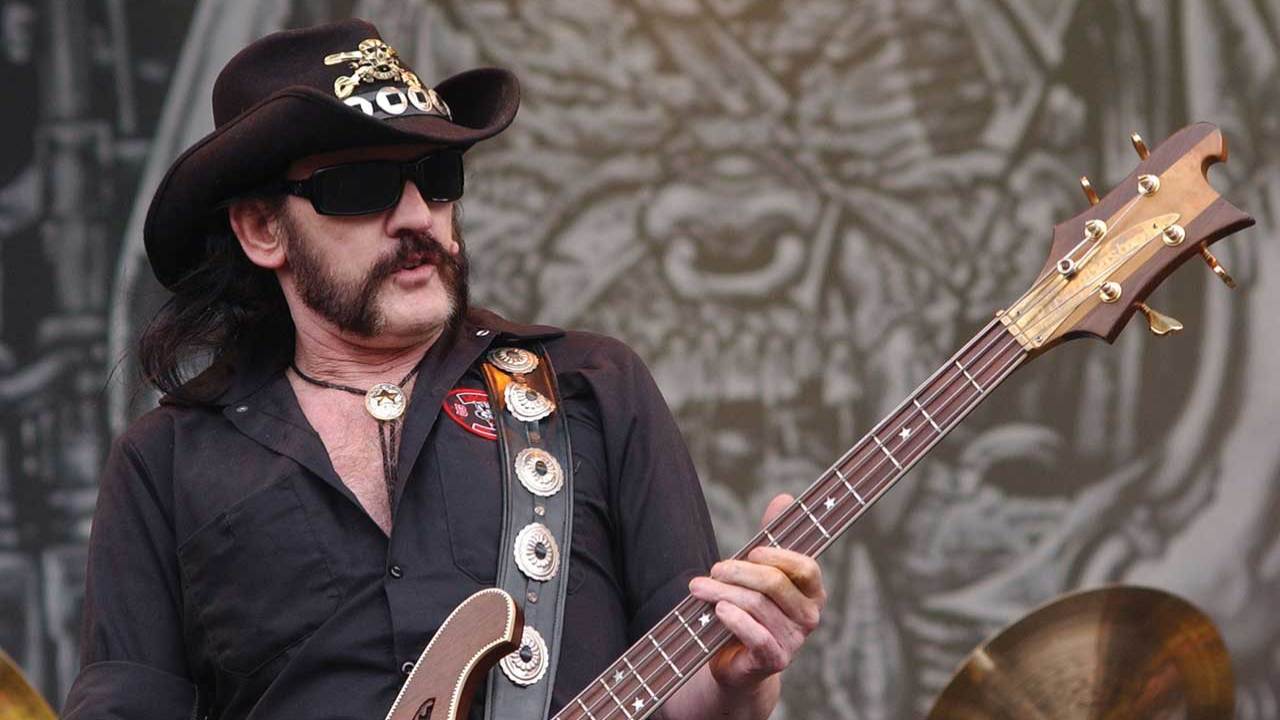On December 11, 2015, Lemmy Kilmister took his final bow on the stage of the Max-Schmeling-Halle in Berlin. It was the last show of Motörhead’s European tour, and it had ended in typically deafening style, with the classic song Overkill.
With the sound of feedback and the cheers of a 7,000-strong audience still ringing in his ears, a frail and exhausted Lemmy raised a fist in salute before slowly walking away into the darkness.
Seventeen days later, he was dead. Lemmy didn’t die on the road, as he often joked he would. He finished the tour. And that final Motörhead gig – Lemmy’s last stand – was heroic. As Motörhead drummer Mikkey Dee says: “All through that show in Berlin I was looking at Lem, and I couldn’t believe that he actually got through it. He was pretty weak at the end. It took all his energy to get up on that stage and play. And yet he was still able to deliver an incredible performance. When I think about that now, it’s unbelievable.”
Everyone who really knew Lemmy says the same thing about him: he lived for the road. For him it was an essential part of the rock’n’roll lifestyle. The thrill of being onstage, night after night; the places to see, the people to meet; the women, the booze, the drugs; the endless opportunities for fun and games… he loved it all. It was a lifestyle celebrated in the title of the band’s legendary 1981 live album No Sleep ’Til Hammersmith, and in the words of the anthem he wrote in tribute to the unsung heroes of rock’n’roll, (We Are) The Road Crew: ‘I just love the life I lead / Another beer is what I need / Another gig, my ears bleed…’
Richie Duncan has lived that life as a member of Motörhead’s crew since 1997. He says: “We had a motto out on the road: work hard, play hard. Every night, we’d drink I don’t know how many bottles of Jack Daniel’s. And there were no superstars with this band: it was like a family.”
Richie was chef for the band and crew. “Lemmy liked simple food,” he says. “His big favourite was cod in parsley butter sauce, mashed potatoes and marrowfat peas – always marrowfat peas, straight out of the tin. He also liked shepherd’s pie, but – this was important – no onions. He hated onions.”
The Scotsman also took care of Lemmy’s dressing room refreshments: “Jack Daniel’s, Coca-Cola, ice, cigarettes, a big ashtray…” And he would supply Lemmy with a late-afternoon breakfast, when required. “I would be in the kitchen at the venue and Lemmy would come in and use the sink to wash his hair while I was making him poached eggs and a fried slice.”

Richie remembers Lemmy not as a boss, but as a friend. “I loved hearing his stories,” he says, “but he was also a good listener. He cared.”
In that sense, then, Lemmy was a rarity – a famous rockstar with a genuine respect for those who worked with him and for him. And this was something that made an impression on the bands that toured with Motörhead over the years, among them Clutch and Testament.
Clutch frontman Neil Fallon tells Metal Hammer: “The Motörhead crew were some of the nicest people you could meet, and I attribute this to the fact that a captain picks his crew, and the captain of that crew was Lemmy. Yes, he was 49% motherfucker and 51% son of a bitch, but he was also 100% pure class. And it was clear that, for Lemmy, the show, every single night, was sacred – all else be damned. So thank you, Lemmy, for allowing us on board and showing us how it’s done.”
Testament singer Chuck Billy echoes that sentiment. “The way Motörhead treated their support bands, they were just a class act,” he says. “There were no issues, no cutting your sound. Lemmy really was a complete gentleman. And he definitely lived up to what you had heard about him. The man really lived that whole rock’n’roll lifestyle. We were on the Metal Masters tour with Motörhead, Heaven & Hell and Judas Priest back in 2008, and every day you would see Lemmy walking into the venue in his underwear and a pair of cowboy boots, drinking Jack Daniel’s and smoking, heading to the bathroom to take his morning dump. You’d think: ‘Wow, that’s rock’n’roll! That’s Lemmy!’”

He lived for the road, and he played hard and fast right ’til the end. “There’s one thing I will always remember,” Mikkey Dee says. “In those last three years, when Lemmy was struggling with his health, we pulled down the tempos in certain songs. But when we went to London to rehearse for that last European tour, I started some songs in the slower tempos, and Lem went, ‘Argh, it’s too fucking slow, Mikk!’ I said, ‘Holy crap! You’re back!’ I was so happy. He wanted to push it. And that whole tour, he was holding nothing back. To the very last show, the sonofabitch was kicking ass!”
Lemmy’s Rider
• 2 x large bottles of Jack Daniel’s
• 6 x bottles/cans of lager/ beer (Miller Genuine Draft in USA/Carlsberg Export in Europe)
• 24 x 355ml/12 fl oz cans of Coca Cola Classic (PLAIN OLD COCA COLA)
• 2 x bottles of Lemon/Lime Gatorade
• 2 x bags Ruffles Cheddar & Sour Cream potato chips • 1 x bag salt and vinegar’ potato chips
• 1 x can/jar of Ruffles Ranch Dip (or similar brand)
• 1 x small deli tray with assorted meats, cheeses, pickles, salad, mustard, mayonnaise, salt/pepper etc
• 2 x milk chocolate snack bars (no nuts, no Hersheys)
• 2 x dark chocolate snack bars (no nuts, no Hersheys)
• 6 x Kinder Surprise Eggs
• 1 x loaf fresh sliced bread (wheat)
• 1 x carton of spreadable margarine
• 1 x cheese tray with Cheddar, Brie and other selection of cheese blocks
• 1 x box of crackers for cheese
• 2 x fresh hard boiled eggs
• 1 x small jar of Marmite/ Vegemite spread
• 1 x bowl of freshly washed strawberries (with the tops cut off ) with white sugar
• 2 x English daily newspapers
• 2 x packs Marlboro cigarettes (red pack) – soft pack if available
• 2 x ashtrays
• An ice bucket WITH A CONSTANT SUPPLY OF CLEAN ICE CUBES WHEN REQUIRED – EXTREMELY IMPORTANT
• 25 x LARGE plastic cups. knives, forks, spoons (real silverware if possible), plates & napkins
An Ace Up The Sleeve
Live album No Sleep ’Til Hammersmith captured a band at their peak and earned Motörhead their first and only UK Number One

Motörhead didn’t actually play London’s Hammersmith Odeon on their 1981 Short Sharp Pain In The Neck tour, from which most of this career-defining live album was taken. Presumably the band and their record label decided that No Sleep Til Maysfield Leisure Centre, the Belfast venue where the tour concluded, didn’t have quite the same ring.
But the title is the only trace of artifice on what is one of the most unvarnished documents in rock’n’roll history. As with its two obvious antecedents, Jerry Lee Lewis’s Live At The Star Club, Hamburg (1964) and the Ramones’ It’s Alive (1979), it’s all about adrenaline and attack, the group’s ‘classic’ lineup hammering through 11 of their best-loved songs at breakneck speed, with an intensity rendering their studio versions redundant, prefiguring the dawn of the thrash metal era.
At the time, Lemmy felt that Motörhead were “winning” – indeed, the trio were presented with gold and silver discs for Ace Of Spades and Overkill before the shows at Leeds and Newcastle from which much of No Sleep… was culled – and there’s a joyous, celebratory swagger in how they gleefully steamroll through the likes of No Class, Overkill, (We Are) The Road Crew and the peerless, deathless Bomber.
Lemmy was in New York, touring with Ozzy, when he heard the album had debuted atop the UK album chart, proof that the group he’d conceived six years previously as “the dirtiest rock’n’roll band in the world” were now national treasures. “Of course, when you’ve peaked, there’s nowhere to go but down,” he noted in his 2002 autobiography, White Line Fever. “But at the time, we didn’t know we’d peaked. We didn’t know anything.”

